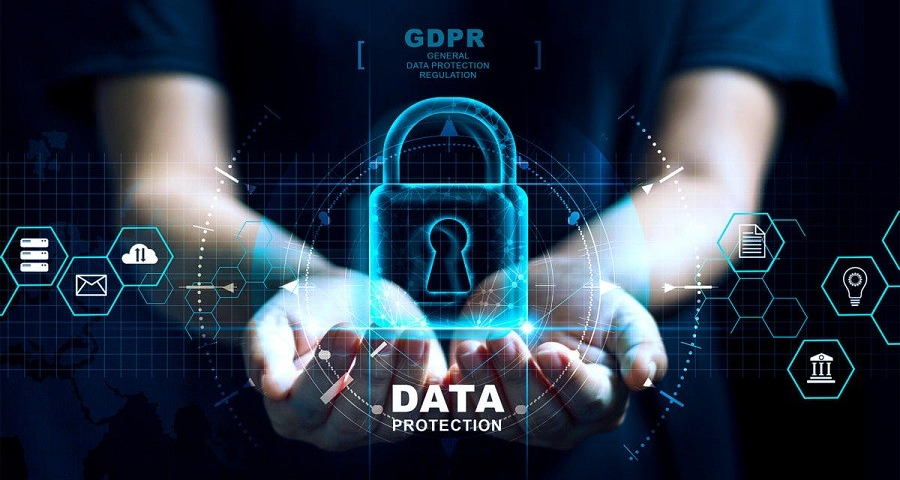
How AI Can Help You Create Winning Ad Campaigns in Minutes
December 19, 2024
Enhancing Creativity: Using AI for Visual and Video Content Creation
December 20, 2024
In today’s interconnected digital landscape, personal data has become one of the most valuable assets. From online shopping and social media to banking and healthcare, your personal information fuels the seamless experiences we’ve come to expect. However, with this convenience comes the pressing need for robust data protection. Enter the Personal Data Protection Act (PDPA) — a crucial framework designed to safeguard your privacy while empowering businesses to handle data responsibly.
But what exactly is the PDPA, and how does it impact you as a consumer or a business? Let’s break it down and uncover how the PDPA protects your data in a digital world.
What Is the PDPA?
The Personal Data Protection Act (PDPA) is a data protection law enacted to govern the collection, use, and disclosure of personal data by organizations. First introduced in Singapore in 2012, the PDPA aims to strike a balance between an individual’s right to privacy and the need for businesses to use data for legitimate purposes. Over the years, the Act has evolved to address emerging data privacy concerns, keeping pace with technological advancements and global standards.
Under the PDPA, organizations are required to:
- Obtain consent before collecting or using personal data.
- Inform individuals about the purpose of data collection.
- Protect personal data from unauthorized access or breaches.
- Allow individuals to access or correct their data upon request.
Why Does the PDPA Matter?
For Consumers:
Imagine this: You’ve signed up for an online newsletter, only to find your inbox flooded with unsolicited marketing emails from third-party companies. Or worse, your personal data has been compromised in a data breach. The PDPA serves as a shield against such violations, ensuring that organizations respect your privacy and handle your data responsibly.
For Businesses:
Compliance with the PDPA isn’t just about avoiding hefty fines or legal consequences. It’s an opportunity to build trust and credibility with your customers. A business that prioritizes data protection demonstrates its commitment to transparency and ethical practices, fostering long-term customer loyalty.
Key Principles of the PDPA
To truly understand how the PDPA protects your data, let’s explore its foundational principles:
- Consent: Organizations must seek your explicit consent before collecting, using, or sharing your personal data. For instance, when signing up for an app, you’ll often encounter a consent form outlining how your data will be used.
- Purpose Limitation: Your data can only be used for the specific purpose stated when it was collected. If a company collects your email address for billing, they cannot use it for marketing without your approval.
- Data Accuracy: Organizations are obligated to ensure the data they collect is accurate and up-to-date. This minimizes the risk of errors or misuse.
- Protection: Businesses must implement robust security measures to protect personal data from unauthorized access, theft, or breaches.
- Retention Limitation: Personal data should not be retained longer than necessary. For example, a company should delete your account details once you’ve terminated a service.
- Accountability: Organizations are accountable for ensuring compliance with the PDPA. This includes appointing a Data Protection Officer (DPO) to oversee data protection policies and practices.
How the PDPA Protects Your Data in the Digital Age
The rise of digital platforms, artificial intelligence, and big data analytics has transformed how personal data is handled. Here’s how the PDPA adapts to these challenges:
1. Enhanced Cybersecurity:
With cyber threats on the rise, the PDPA mandates organizations to adopt stringent security measures. This includes encrypting sensitive information, conducting regular security audits, and training employees on data protection practices.
2. Consent for Marketing:
The PDPA’s Do Not Call (DNC) Registry empowers individuals to opt out of telemarketing messages, ensuring you’re not bombarded with unsolicited calls or texts.
3. Data Breach Notification:
In the event of a data breach, organizations must notify affected individuals and the Personal Data Protection Commission (PDPC) promptly. This transparency allows individuals to take necessary precautions to mitigate potential harm.
4. Cross-Border Data Transfers:
As businesses operate globally, the PDPA ensures that personal data transferred overseas is protected to a comparable standard. This safeguards your data even when it’s handled beyond Singapore’s borders.
Expanding the PDPA’s Reach
With the digital landscape continuously evolving, the PDPA has been updated to address new challenges such as artificial intelligence and machine learning. These updates ensure that businesses leveraging AI for predictive analytics, customer engagement, or automation remain compliant with data protection principles. For example, businesses must ensure that AI algorithms are designed to handle data ethically and securely.
Impact on E-Commerce and Online Services:
For e-commerce businesses, the PDPA ensures customer data, such as payment details and delivery addresses, are handled with utmost care. As online services grow in popularity, companies are also required to provide clear privacy policies and secure transactions, bolstering consumer confidence.
Balancing Innovation with Privacy:
The PDPA’s flexibility allows businesses to innovate while maintaining privacy standards. Organizations can still use data for market research or product development as long as they obtain proper consent and ensure anonymity where necessary.

Practical Tips for Businesses to Ensure PDPA Compliance
If you’re a business owner, here’s how you can align with the PDPA:
- Appoint a Data Protection Officer (DPO): Designate a responsible individual to oversee compliance efforts and address data protection concerns.
- Conduct Regular Audits: Assess your data collection, storage, and processing practices to identify potential gaps.
- Educate Your Team: Provide training to employees on the importance of data protection and their role in ensuring compliance.
- Implement Strong Security Measures: Use firewalls, encryption, and secure servers to protect sensitive information.
- Establish Clear Privacy Policies: Draft and communicate clear privacy policies to your customers, outlining how their data will be used and protected.
- Leverage Technology: Adopt tools and software that ensure secure data management and monitor compliance automatically.
Real-Life Examples of PDPA in Action
Case Study 1: E-Commerce Breach:
In 2020, a popular online retailer in Singapore faced a data breach, compromising thousands of customer records. The PDPC imposed a hefty fine, and the retailer was required to overhaul its cybersecurity practices. This incident highlighted the importance of robust security and regular system updates.
Case Study 2: Improper Marketing Practices:
A travel agency was fined for sending marketing messages to individuals who had opted out via the DNC Registry. The case underscores the importance of respecting consumer preferences and maintaining updated records.
The Cost of Non-Compliance
Ignoring the PDPA can have severe consequences. Organizations found in breach of the Act face fines of up to S$1 million or more, depending on the severity of the violation. Beyond financial penalties, the reputational damage can be devastating, leading to loss of customer trust and revenue.
Non-compliance also risks creating a ripple effect of negative publicity and legal battles, which could tarnish a company’s brand for years.

Empowering Consumers and Businesses
The PDPA isn’t just a legal framework; it’s a step toward creating a culture of respect and responsibility in the digital world. As a consumer, it empowers you to take control of your personal data. As a business, it’s an opportunity to demonstrate ethical leadership and build meaningful relationships with your customers.
Final Thoughts
In an era where data is the new oil, the PDPA serves as a critical safeguard, ensuring that personal information is treated with care and respect. Whether you’re a consumer or a business owner, understanding and embracing the principles of the PDPA is essential to thriving in a digital world. By demystifying the Act and taking proactive steps, we can all contribute to a safer, more trustworthy digital ecosystem.
The PDPA is not merely a regulation—it’s a guide for navigating the complexities of the digital world with integrity and trust. So, are you ready to embrace the PDPA and protect your data in this ever-evolving digital age?


